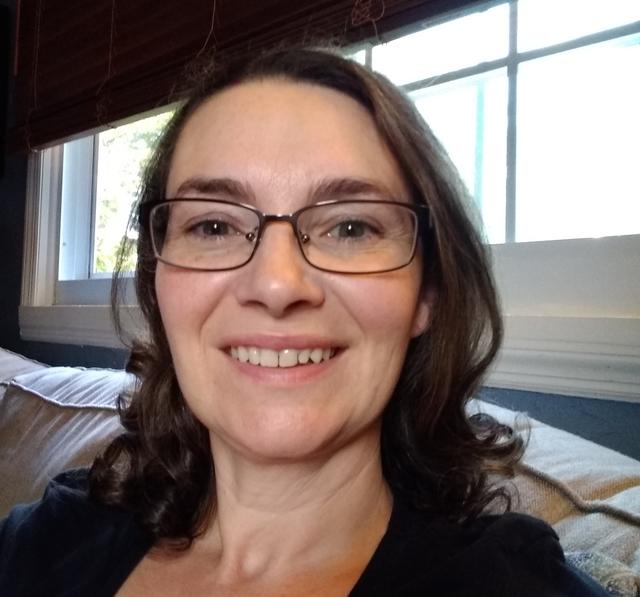
Faculty member selected for prestigious research fellowship to study intersectionality for HBCU STEM students

Assistant professor Genevieve Ritchie-Ewing, Ph.D., in the Department of Social and Behavioral Sciences at Central State University, has been selected as a faculty fellow in the 2024 Faculty Research Fellowship Program in the HBCU STEM US Research Center.

Ritchie-Ewing teaches anthropology, sociology, and forensics and has received a National Science Foundation grant to create a Forensic Studies Minor.
The fellowship through the HBCU STEM US Research Center involves intersectionality among science, technology, engineering, and mathematics students at Historically Black Colleges and Universities (HBCUs), delving into the psychosocial factors that impact the academic success of these students, according to a program overview.
It will focus on exploring the experiences of HBCU students and how their identities affect academic performance. By using an intersectionality perspective, the study will provide in-depth knowledge about the unique experiences of Black students who are pursuing STEM majors at HBCUs.
The findings from this research aim to help in broadening participation in STEM across HBCUs by shedding light on the factors that influence academic success among HBCU STEM students.
The HBCU STEM US Research Center is a collaboration with Morehouse College, Spelman College, and Virginia State University.
Ritchie-Ewing recently received a $400,000 National Science Foundation (NSF) HBCU-Undergraduate Program Targeted Infusion Project grant. She and co-principal investigators (PI) Drs. Leanne Petry and Suzanne Seleem, professions of Chemistry, will create three new forensic courses — Forensic Anthropology, Forensic Psychology, and Forensic Social Work — and a new Forensic Studies Minor.
“That grant requires an external evaluator to collect data about student perceptions and thoughts regarding the new courses and minor,” Ritchie-Ewing said.
“We also plan to explore barriers students face in seeing themselves as part of the forensic fields (personal, practical, and identity-based barriers). I'm using the fellowship to help me design collection strategies for that data as well as learn more about the various ways I can use that data.”
“As a requirement of the fellowship is producing an NSF project summary for a new grant, I am working with Professor Brittany Brake, assistant professor of Political Science, to develop a grant proposal to bring new computer modeling programs to the Political Science program. As part of that proposal, we want to look at barriers students face in developing and implementing research projects. Again, those barriers can come from a variety of internal and external sources.”
With deep excitement for the opportunity to broaden her research interests and interact with HBCU faculty members from across the country, Ritchie-Ewing considered psychosocial factors often overlooked in research. These include factors related to barriers students face in seeing themselves as scientists, she said.
“For first generation students, however, these barriers can be significant in achieving academic success in the students chosen field,” Ritchie-Ewing added. “Many HBCU students are first-generation college students and may not have African American and Black role models in science to show them their dreams are a possibility. I'm hoping this kind of research will reveal those kinds of barriers and explore ways to help students more fully understand their own potential.”
Ritchie-Ewing's prior research interests focused on how cultural expectations and social structures such as racial bias affect maternal experiences during and after pregnancy in the United States. She also has explored the use and perception of open educational resources (OER) in undergraduate classrooms.
Teaching, however, is Ritchie-Ewing's true passion, and working at a small university enables her to concentrate on teaching classes and creating close mentoring relationships with her undergraduate students, she said.
Ritchie-Ewing holds a doctorate degree in Anthropology from The Ohio State University, a Master of Arts in Anthropology from the University of Tennessee-Knoxville, and a Bachelor of Science in Biology from Millersville University. Fields of specialization include medical anthropology, stress and human reproduction, biocultural approaches, and biopolitics of health and pregnancy.
Her thesis titles were “Managing Mixed Messages: Cultural expectations of motherhood and maternal stress during pregnancy” and “A Comparison of Human Decomposition in an Indoor and Outdoor Environment.
Ritchie-Ewing joined the faculty at Central State in August 2018. Prior to coming to CSU, she held the following positions:
-
Adjunct faculty member, Department of Sociology and Anthropology, Wright State University.
-
Graduate teaching associate and graduate research assistant, Center for the Study of Teaching and Writing and the Department of Anthropology at The Ohio State University; and the Department of Anthropology, University of Tennessee-Knoxville.
-
Research assistant, Lifespan Health Research Center, Wright State University.
With numerous grants and fellowship awards since 2014, Ritchie-Ewing also worked as a forensic technician at the Tennessee Bureau of Investigation and a forensic autopsy technician at the Knox County Medical Examiner’s Office, both in Knoxville.
More detailed information about the program can be found at https://stemuscenter.org/intersectionality-in-stem-at-hbcus/


